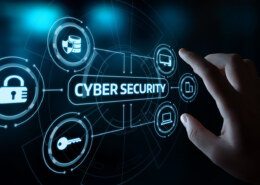How does a firewall works?
Cybersecurity is crucial for a country's integrity for several reasons: 1. National security: Protects critical infrastructure and sensitive government data from foreign threats and espionage. 2. Economic stability: Safeguards financial systems, intellectual property, and business operations from cyRead more
Cybersecurity is crucial for a country’s integrity for several reasons:
1. National security: Protects critical infrastructure and sensitive government data from foreign threats and espionage.
2. Economic stability: Safeguards financial systems, intellectual property, and business operations from cyber attacks.
3. Democracy protection: Ensures the integrity of electoral systems and prevents foreign interference in political processes.
4. Public safety: Protects essential services like power grids, water systems, and healthcare from disruptions.
5. Military defense: Secures military communications and weapon systems from cyber warfare.
6. Data privacy: Protects citizens’ personal information from breaches and unauthorized access.
7. Technological advancement: Encourages innovation by creating a secure environment for research and development.
8. International relations: Maintains trust and cooperation with allies in sharing sensitive information.
9. Crisis management: Enables effective response to cyber incidents and natural disasters.
10. Economic competitiveness: Attracts foreign investment by demonstrating a secure business environment.
11. Legal and regulatory compliance: Ensures adherence to international cybersecurity standards and agreements.
12. Reputation management: Protects the country’s image and credibility on the global stage.
By prioritizing cybersecurity, a country safeguards its sovereignty, economic interests, and citizens’ well-being in an increasingly digital world.
See less

a
a
See less